PROKNOW Submarine Week
0.0(0)
0.0(0)
New
Card Sorting
1/53
Earn XP
Description and Tags
Study Analytics
Name | Mastery | Learn | Test | Matching | Spaced |
|---|
No study sessions yet.
54 Terms
1
New cards
Mission of the Submarine Community
The mission of the US Submarine force is to execute the mission of the US Navy in and from the undersea domain. In addition to lending added capacity to the Naval Forces, the Submarine force in particular is expected to leverage those special advantages that come with undersea concealment to permit operational, deterrent, and combat effects that the Navy and the Nation could not otherwise achieve. These effects may be delivered within the undersea domain or across domain boundaries; they may be delivered from submarines far-forward or in broad ocean areas.; they may be the result of carefully coordinated operations with other forces or achieved by independent operations; and they may be accomplished in peacetime, a time of tension, or during conflict.
2
New cards
Submarine Birthday Ball
April 11th annually, remember those who have died
3
New cards
Officer Qualified Sub Insignia
"Dolphins/Fish" approved in March 1924.
Bow view of a sub on the surface, bow planes rigged for diving, dolphin fish flanking bow/conning tower
Gold
Bow view of a sub on the surface, bow planes rigged for diving, dolphin fish flanking bow/conning tower
Gold

4
New cards
Enlisted Qualified Sub Insignia
"Dolphins/Fish" approved in March 1924.
Bow view of a sub on the surface, bow planes rigged for diving, dolphin fish flanking bow/conning tower
Silver
Bow view of a sub on the surface, bow planes rigged for diving, dolphin fish flanking bow/conning tower
Silver
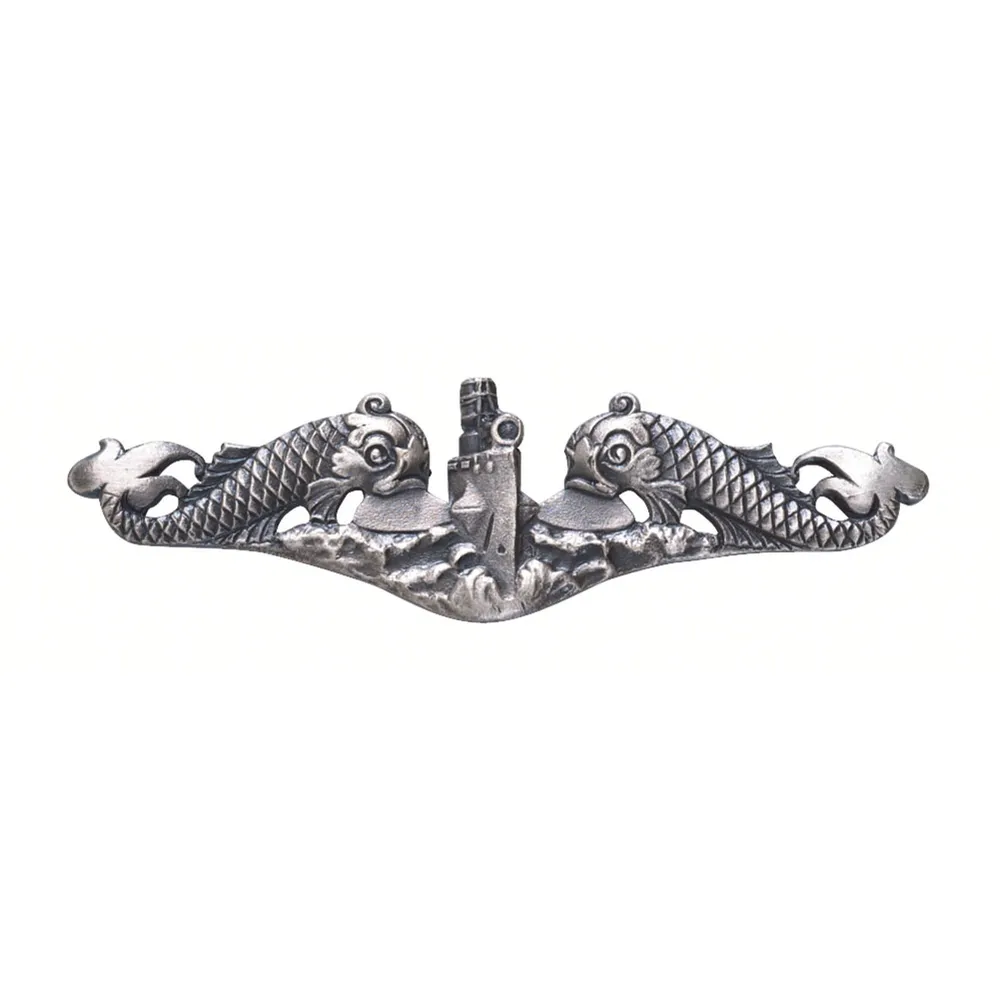
5
New cards
SSBN Deterrence Patrol Pin
Worn by officers/enlisted who've completed successful patrols in an SSBN.
Lafayette Class Sub with Polaris Missile and electron rings
Gold Star=1 Successful Patrol
Silver Star=5 Successful Patrols
Gold Pin= 20 Successful Patrols
Lafayette Class Sub with Polaris Missile and electron rings
Gold Star=1 Successful Patrol
Silver Star=5 Successful Patrols
Gold Pin= 20 Successful Patrols
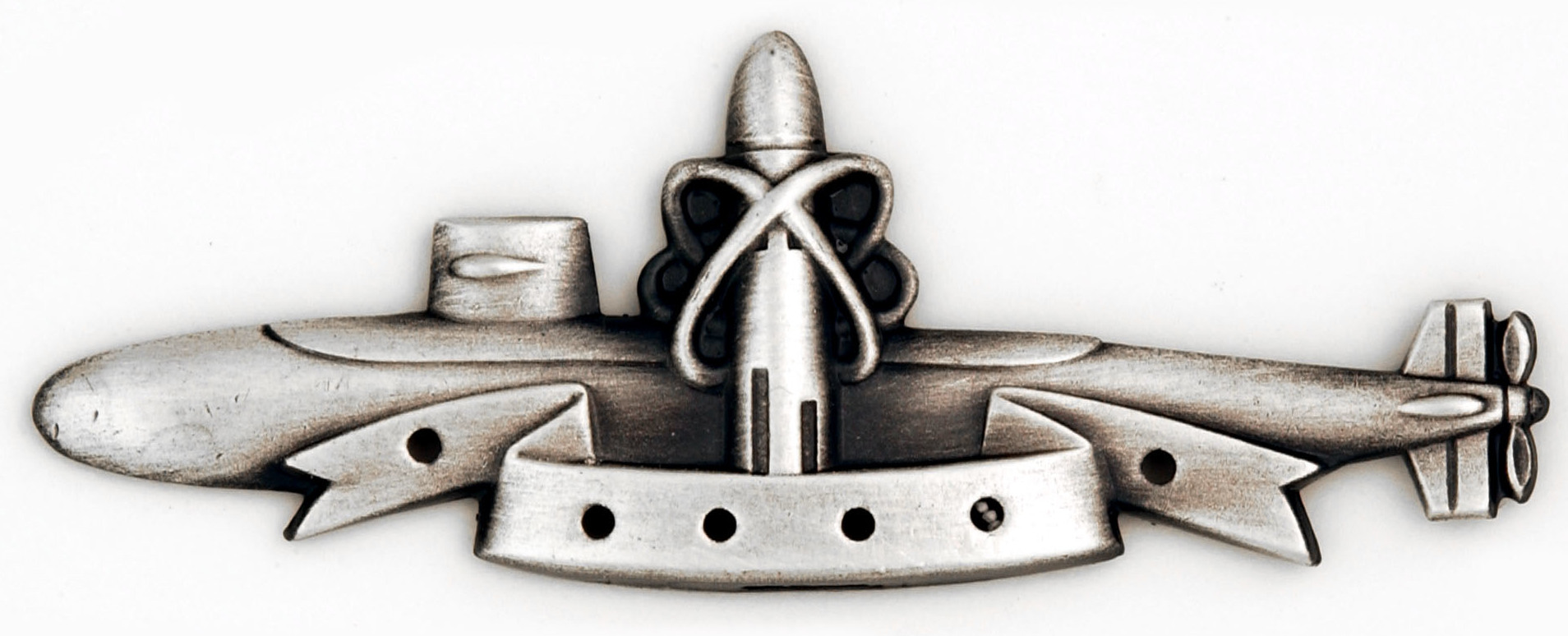
6
New cards
Submarine Combat Patrol Pin
Officers/Enlisted who've completed patrols in DECLARED wars (last was WWII).
Broadside of Gato-Class Diesel Sub
Gold Star=1 Successful Patrol
Silver Star=5 Successful Patrols
Broadside of Gato-Class Diesel Sub
Gold Star=1 Successful Patrol
Silver Star=5 Successful Patrols

7
New cards
American Revolution
The Turtle (1775)
First sub to be independently propelled, first to be propellor-powered
First sub to be independently propelled, first to be propellor-powered
8
New cards
Civil War
H.L. Hunley (Confederate)
Confederate submersible sank the USS Housatonic with a spar torpedo.
Confederate submersible sank the USS Housatonic with a spar torpedo.
9
New cards
Pre-World War Era
USS Holland (SS-1)
Launched in 1897, acquired by the Navy in 11 April 1900. LT H.H. Caldwell commanded.
Launched in 1897, acquired by the Navy in 11 April 1900. LT H.H. Caldwell commanded.
10
New cards
Birthday of the Submarine Force
11 April 1900
11
New cards
World War I
German U-Boats highly effective, US primarily used subs for defense in American coastal waters.
American subs got some missions to Europe--submarine force became more offensive rather than defensive.
American subs got some missions to Europe--submarine force became more offensive rather than defensive.
12
New cards
World War II
US released Gato, Balao, and Tench class subs.
55% of all enemy ships sunk by 6% of naval force (submarines). 1,314 enemy ships of total 5.3 million tons sunk (8 carriers 200 warships)
Sub force became the most lethal weapon in the Navy.
55% of all enemy ships sunk by 6% of naval force (submarines). 1,314 enemy ships of total 5.3 million tons sunk (8 carriers 200 warships)
Sub force became the most lethal weapon in the Navy.
13
New cards
29-Point Cribbage Hand
LCDR Morton deals LT O'Kane a perfect 29 in cribbage on the USS Wahoo (SS-238), a good omen. They sank two Japanese freighters, and later sank 3 more freighters after dealing a 28-point hand as well.
14
New cards
Cold War
USS Nautilus: First nuclear submarine
ADM Hyman Rickover (USNA '22): "Father of the Nuclear Navy"
- Tear-Dropped Hull Shape: Higher submerged speeds, propulsion efficiency
- Nuclear Powered Propulsion: Shattered previous sub distance, speed, and endurance records--limitless operational endurance if it weren't for food supply
Submarine Force divided into SSBNs and SSNs.
Ballistic Missile Sub (SSBN): Nuclear deterrence (nuclear triad: subs, land silos, airdrops)
Fast-Attack Subs: Protect SSBNs, offensive detection and monitoring of foreign ballistic missile subs
ADM Hyman Rickover (USNA '22): "Father of the Nuclear Navy"
- Tear-Dropped Hull Shape: Higher submerged speeds, propulsion efficiency
- Nuclear Powered Propulsion: Shattered previous sub distance, speed, and endurance records--limitless operational endurance if it weren't for food supply
Submarine Force divided into SSBNs and SSNs.
Ballistic Missile Sub (SSBN): Nuclear deterrence (nuclear triad: subs, land silos, airdrops)
Fast-Attack Subs: Protect SSBNs, offensive detection and monitoring of foreign ballistic missile subs
15
New cards
Sail
The vertical section on the submarine where the bridge is located
16
New cards
Fairwater Plane
The "horizontal wings" located on the sail of the submarine
17
New cards
Bow Plane
The "horizontal wings" located on the bow of the submarine
18
New cards
Fast Attack Subs (SSN) Mission
- Anti-Submarine Warfare (ASW)
- Anti-Surface Warfare (ASUW)
- Strike Warfare (STRIKE) with precision tomahawk missiles
- Deliver/Support special operation forces (SOF)
- Intelligence, Surveillance, Reconnaissance (ISR)
- Support Carrier Groups
- Mine Warfare
*Virginia class allows for littoral operations
- Anti-Surface Warfare (ASUW)
- Strike Warfare (STRIKE) with precision tomahawk missiles
- Deliver/Support special operation forces (SOF)
- Intelligence, Surveillance, Reconnaissance (ISR)
- Support Carrier Groups
- Mine Warfare
*Virginia class allows for littoral operations
19
New cards
SSN Home Ports
West Coast: Pearl Harbor, HI; San Diego, CA; Bremerton, WA; Guam
East Coast: Groton, CT; Norfolk, VA
East Coast: Groton, CT; Norfolk, VA
20
New cards
SSN Classes/Crew
Los Angeles Class
Seawolf Class
Virginia Class
15 Officers, 120 Enlisted
Seawolf Class
Virginia Class
15 Officers, 120 Enlisted
21
New cards
SSN-688 and 688I Los Angeles Class Attack Submarines (SSN 688 -- SSN 773) NOTES
USS Los Angeles commissioned in 1976
Decommissioned at 2/yr, replaced by new Virginia Class SSN
Decommissioned at 2/yr, replaced by new Virginia Class SSN
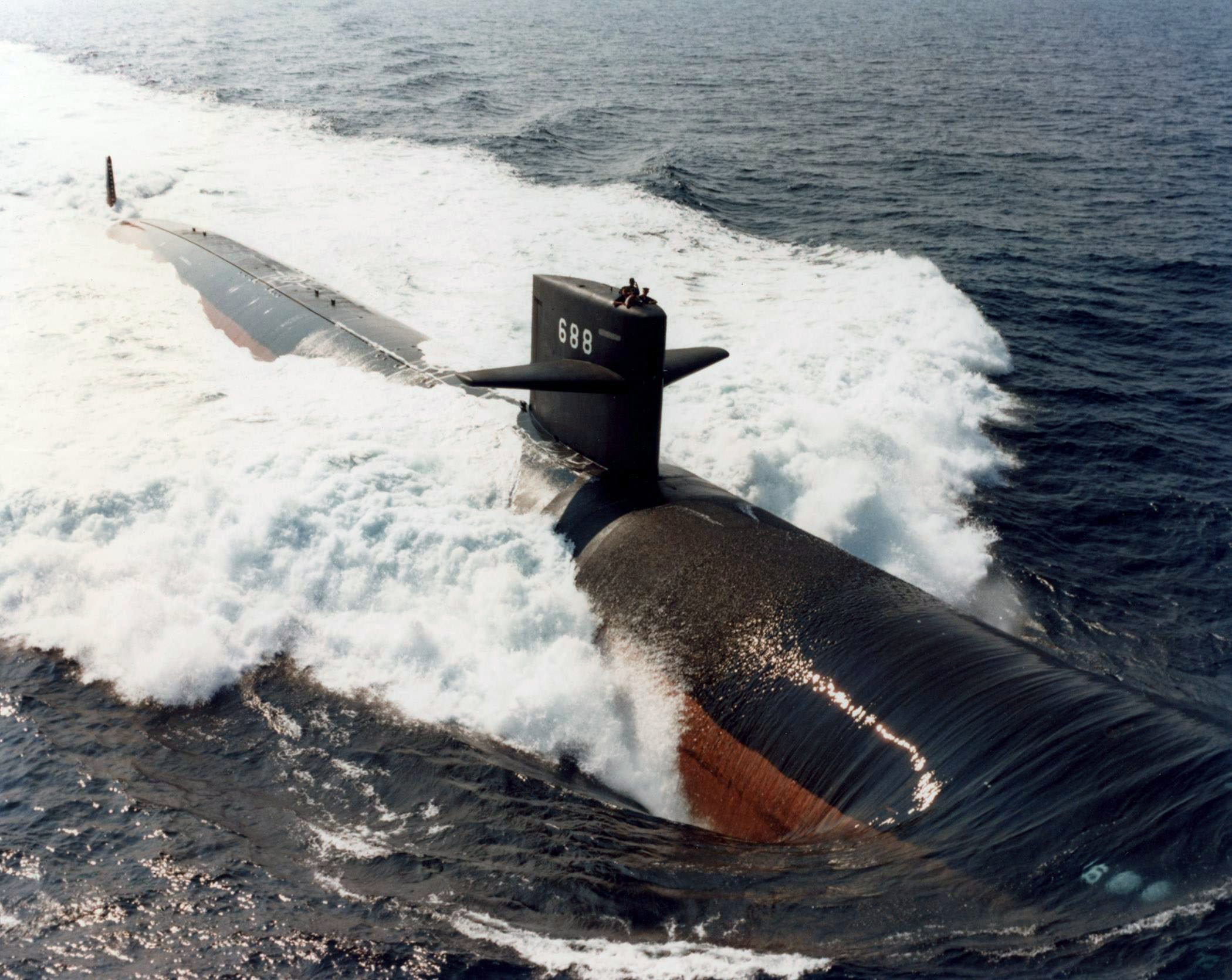
22
New cards
Notable Seawolf Class Attack Submarine + NOTES
USS Seawolf (SSN 21), USS Jimmy Carter (SSN 23)
USS Seawolf (SSN-21) commissioned in 1997.
USS Jimmy Carter (SSN-23) has 100 ft. hull extension called "Multi-mission Platform"
USS Seawolf (SSN-21) commissioned in 1997.
USS Jimmy Carter (SSN-23) has 100 ft. hull extension called "Multi-mission Platform"
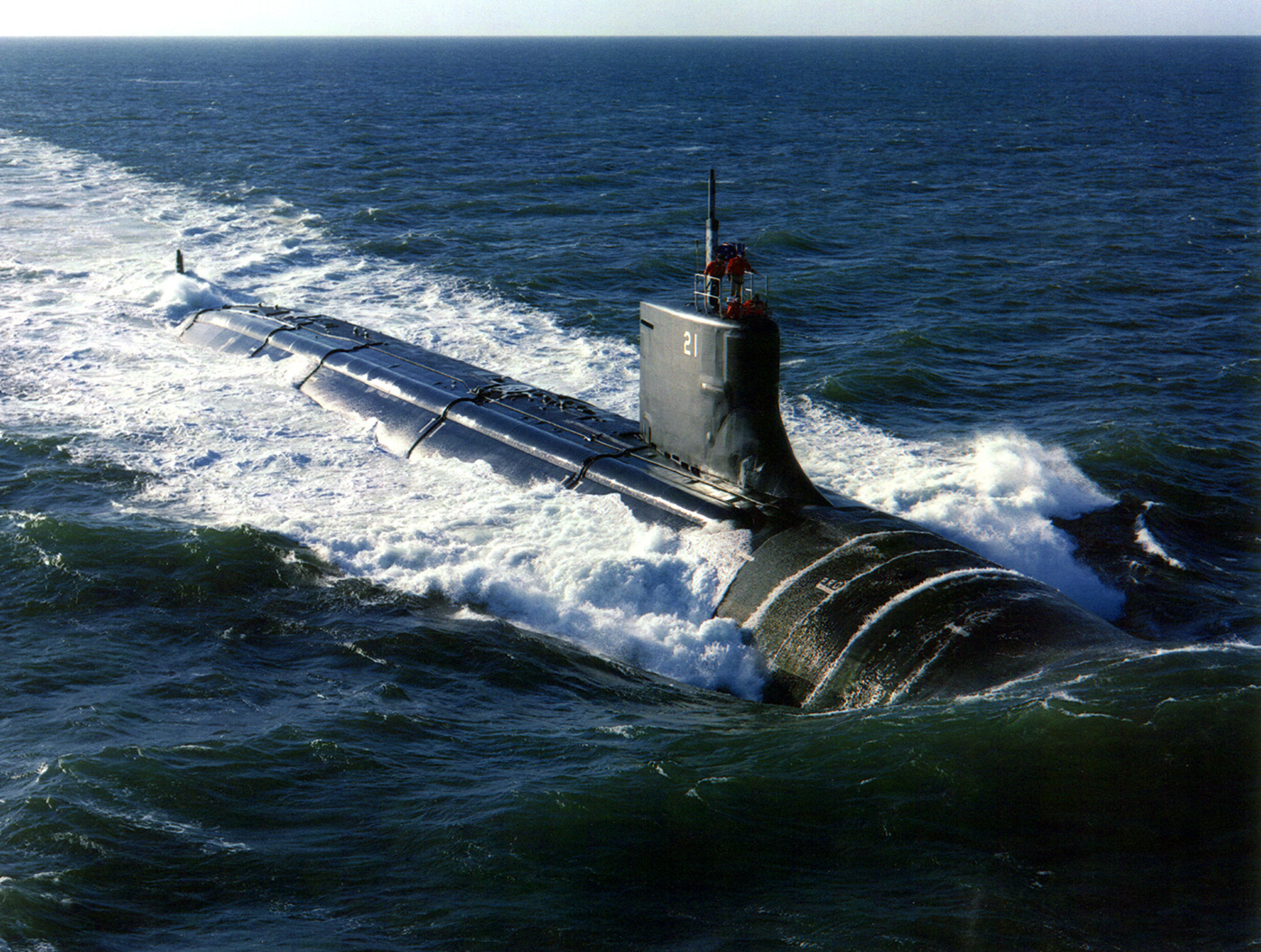
23
New cards
SSN-774 Virginia Class Attack Submarine (SSN 774 -- SSN 821, beyond) ENHANCED CAPABILITIES
(1) Fly-by-wire control system for better shallow-water handling
(2) Better special op forces support systems
(3) Torpedo room is customizable, can torpedoes and Tomhawks, also SOF
(4) Large lock in/lock out chamber for diving
(5) 2 Photonics masts with HD color black/white and infrared cameras
(6) Modular construction, open architecture, commercial off-the-shelf components
(2) Better special op forces support systems
(3) Torpedo room is customizable, can torpedoes and Tomhawks, also SOF
(4) Large lock in/lock out chamber for diving
(5) 2 Photonics masts with HD color black/white and infrared cameras
(6) Modular construction, open architecture, commercial off-the-shelf components
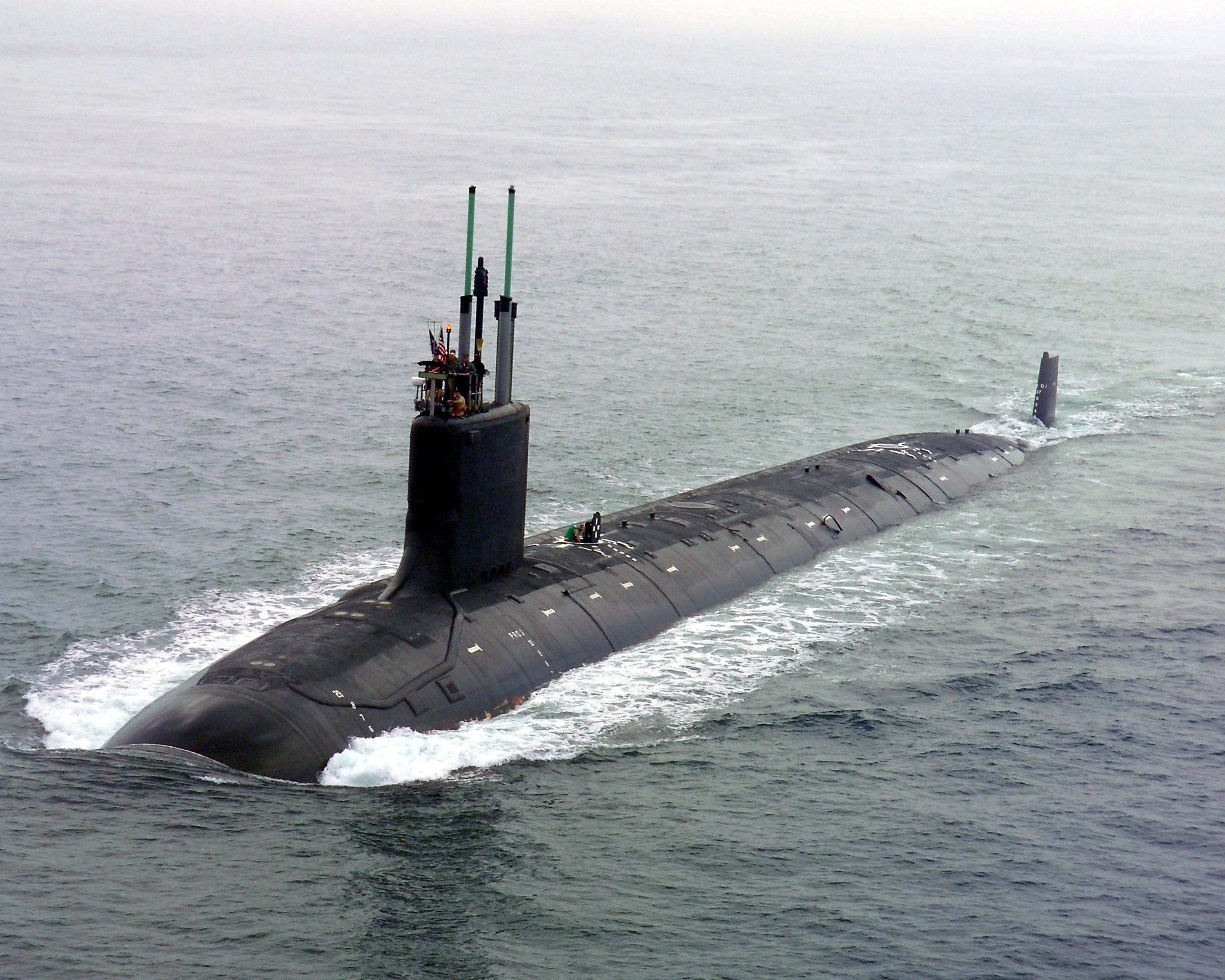
24
New cards
Ballistic Missile Subs (SSBN) Mission
Strategic Deterrence, most survivable and enduring nuclear strike capability
After February 2018, the Strategic Arms Treaty (START) makes SSBN forces responsible fopr 70% of US strategic weapons inventory
After February 2018, the Strategic Arms Treaty (START) makes SSBN forces responsible fopr 70% of US strategic weapons inventory
25
New cards
SSBN Classes
Ohio Class
Nicknamed "Boomers"
Nicknamed "Boomers"
26
New cards
SSBN Home Ports
West Coast: Bangor, WA
East Coast: King's Bay, GA
East Coast: King's Bay, GA
27
New cards
SSBN Crew Rotation
Blue and Gold groups, alternate on patrol.
28
New cards
Notable Ohio Class Ballistic Missile Submarine
USS Maine (SSBN 741)
29
New cards
Guided Missile Subs (SSGN) Mission
Fisrt four Ohio class subs were converted to SSGNs. The provide precision strikes and special ops with secrecy and stealth. One SSGN can carry an entire Carrier Group worth of missiles.
SSGNs carry Dry Deck Vehicle/SEAL delivery vehicles (DDS/SDV) and can deploy UAVs.
SSGNs carry Dry Deck Vehicle/SEAL delivery vehicles (DDS/SDV) and can deploy UAVs.
30
New cards
SSGN Crew Rotation
Use two crews like the SSBNs.
31
New cards
SSGN Home Ports
West Coast: Bangor, WA, swap in Guam
East Coast: King's Bay, GA, swap in Diego Garcia
East Coast: King's Bay, GA, swap in Diego Garcia
32
New cards
Columbia Class Submarine
Planned for future replacement of Ohio Class submarine, getting decommissioned 1/yr starting 2027. Plans to take over the US strategic nuclear force.
X-Shaped stern control surfaces (hydroplanes), sail mounted dive-planes, and electric drive
X-Shaped stern control surfaces (hydroplanes), sail mounted dive-planes, and electric drive
33
New cards
MK-48 and MK-48/ADCAP (ADvanced CAPability) Torpedoes
Principal Anti-sub and Anti-ship heavyweight torpedo. Acoustic-homing, uses SONAR to search and destroy. ADCAP improves speed and accuracy, more sophisticated SONAR, increased range.
1 MK-48 can sink most of the world's warships.
Designed to detonate below a ship, creating steam void to break the ship's keel (keel cracks because of lack of water beneath). Sinks ship VERY quickly.
Pre-programmed search routine or guided by a guidance wire from the submarine.
Target may be unaware of ADCAP until moments before it detonates.
1 MK-48 can sink most of the world's warships.
Designed to detonate below a ship, creating steam void to break the ship's keel (keel cracks because of lack of water beneath). Sinks ship VERY quickly.
Pre-programmed search routine or guided by a guidance wire from the submarine.
Target may be unaware of ADCAP until moments before it detonates.
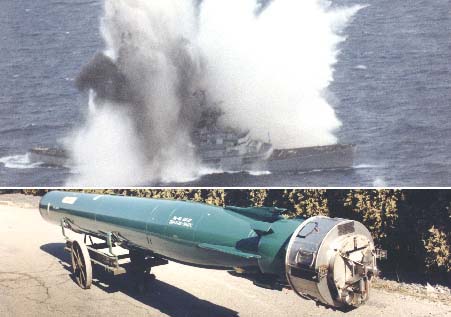
34
New cards
Tomahawk Cruise Missile (TLAM)
Tomahawk Land Attack Missile
All-weather, long range, subsonic missile for LAND ATTACKS
Launched via: VLS or Torpedo Tube
Typically a 1,000 lb. warhead, but can be configured to release combined effect bomblets (anti-airfield).
All-weather, long range, subsonic missile for LAND ATTACKS
Launched via: VLS or Torpedo Tube
Typically a 1,000 lb. warhead, but can be configured to release combined effect bomblets (anti-airfield).
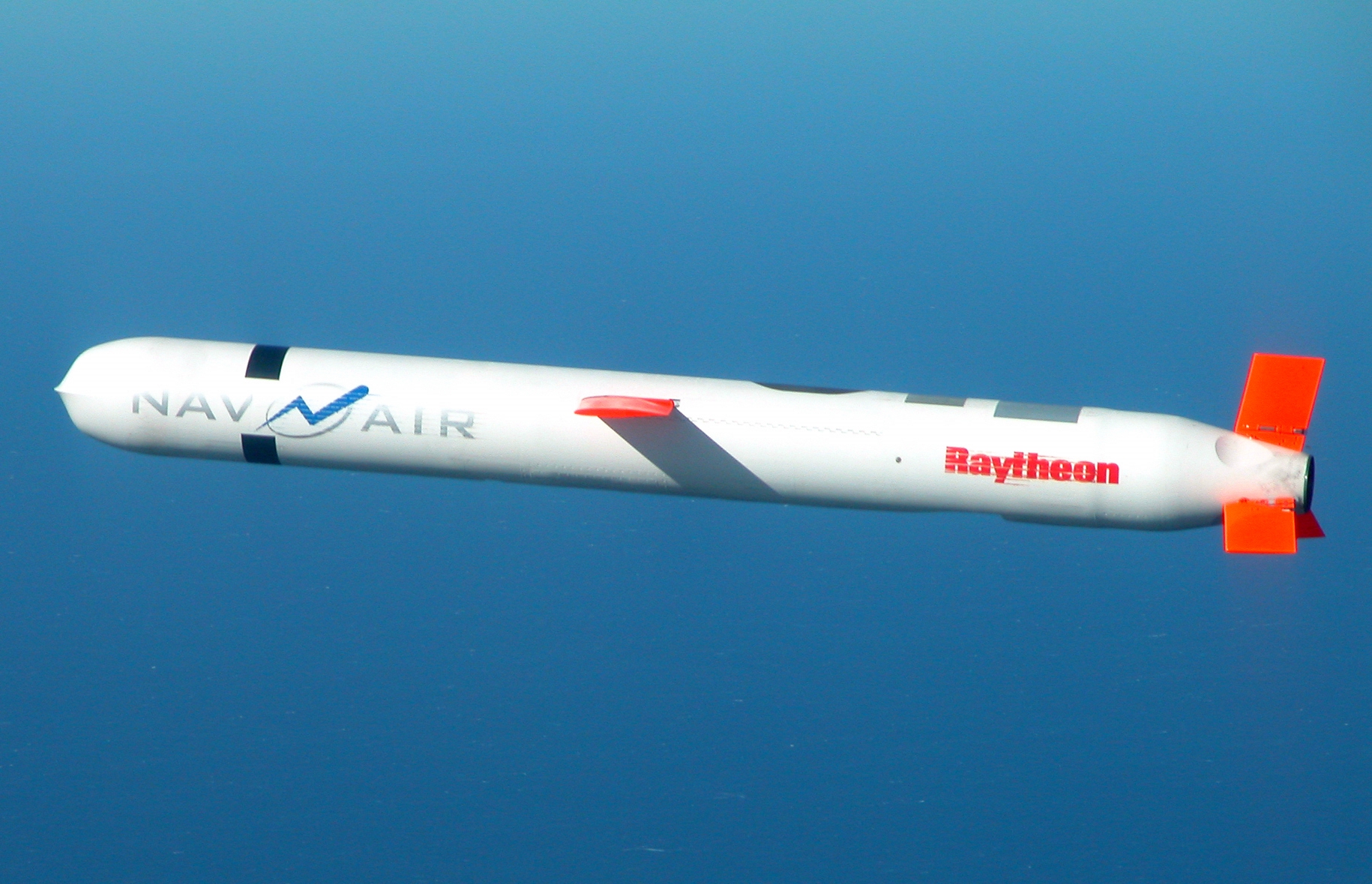
35
New cards
Submarine-Launched Ballistic Missile (SLBM)
Trident II (D5) Missiles are in Ohio Class SSBNs, each up to 24.
4,000 NM Range
Solid-Propellant
Each carries multiple nuclear warheads inside Multiple independent Re-Entry Vehicles (MIRVs) which launch from the main missile.
4,000 NM Range
Solid-Propellant
Each carries multiple nuclear warheads inside Multiple independent Re-Entry Vehicles (MIRVs) which launch from the main missile.
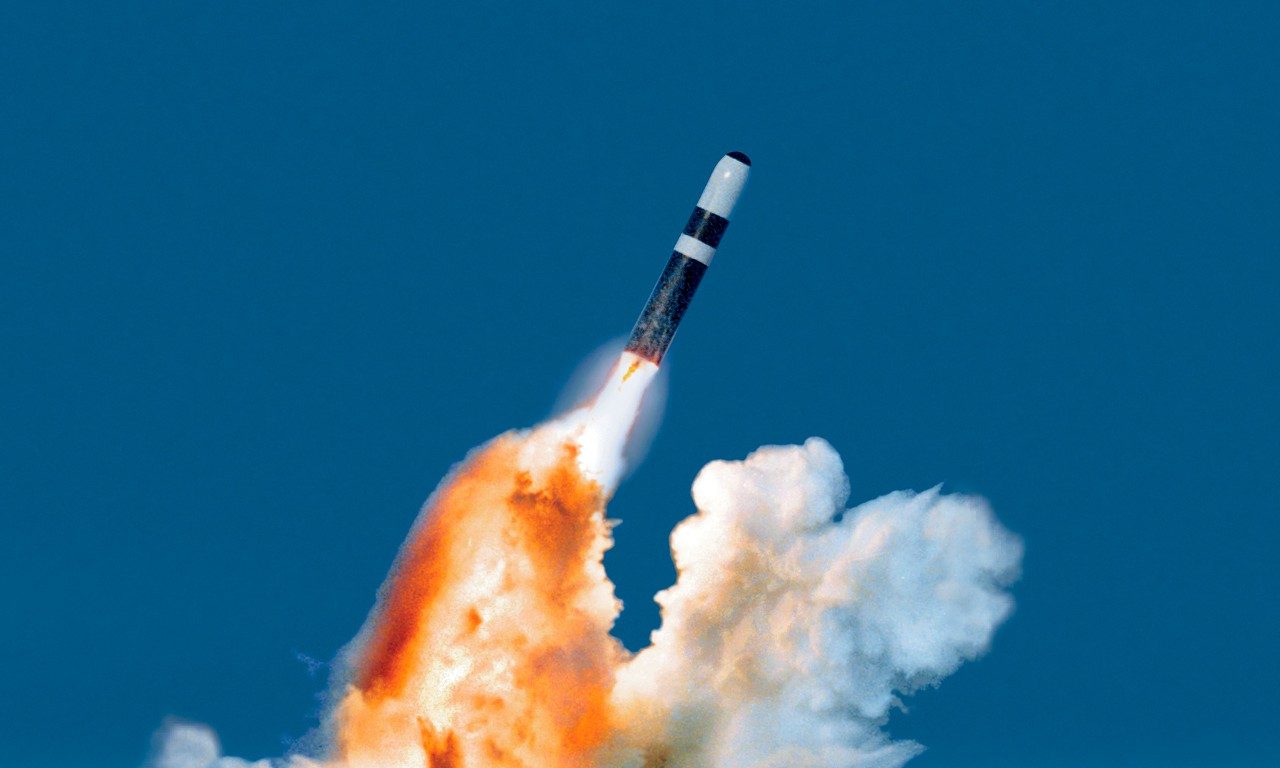
36
New cards
SONAR
Used to locate contacts, ocean floor, and targeting.
ACTIVE SONAR: Sub emits sound pulse and gets a direction+distance to the contact.
PASSIVE SONAR: Listens to noise of a surface ship or submarine
Subs know their location by looking at known features on the ocean floor.
ACTIVE SONAR: Sub emits sound pulse and gets a direction+distance to the contact.
PASSIVE SONAR: Listens to noise of a surface ship or submarine
Subs know their location by looking at known features on the ocean floor.
37
New cards
SONAR Sensors
Spherical Array (bow)
Hull Array (along hull)
Towed Array (out the stern)
High Frequency Array (in the sail)
Hull Array (along hull)
Towed Array (out the stern)
High Frequency Array (in the sail)
38
New cards
Periscope
Lenses and mirrors to see over the surface used for safety/targeting.
39
New cards
Photonics
Cameras to transmit photos/images. Detect ships/aircraft, ranging, infrared/low level light detection, comms, and EM spectrum monitoring.
40
New cards
SSN-688 and 688I Los Angeles Class Attack Subs (SSN 688 -- 773) WEAPONS
4 Torpedo Tubes
- MK 48 ADCAP Torpedoes
- UGM-109 Tomahawk Cruise Missiles
- MK 48 ADCAP Torpedoes
- UGM-109 Tomahawk Cruise Missiles
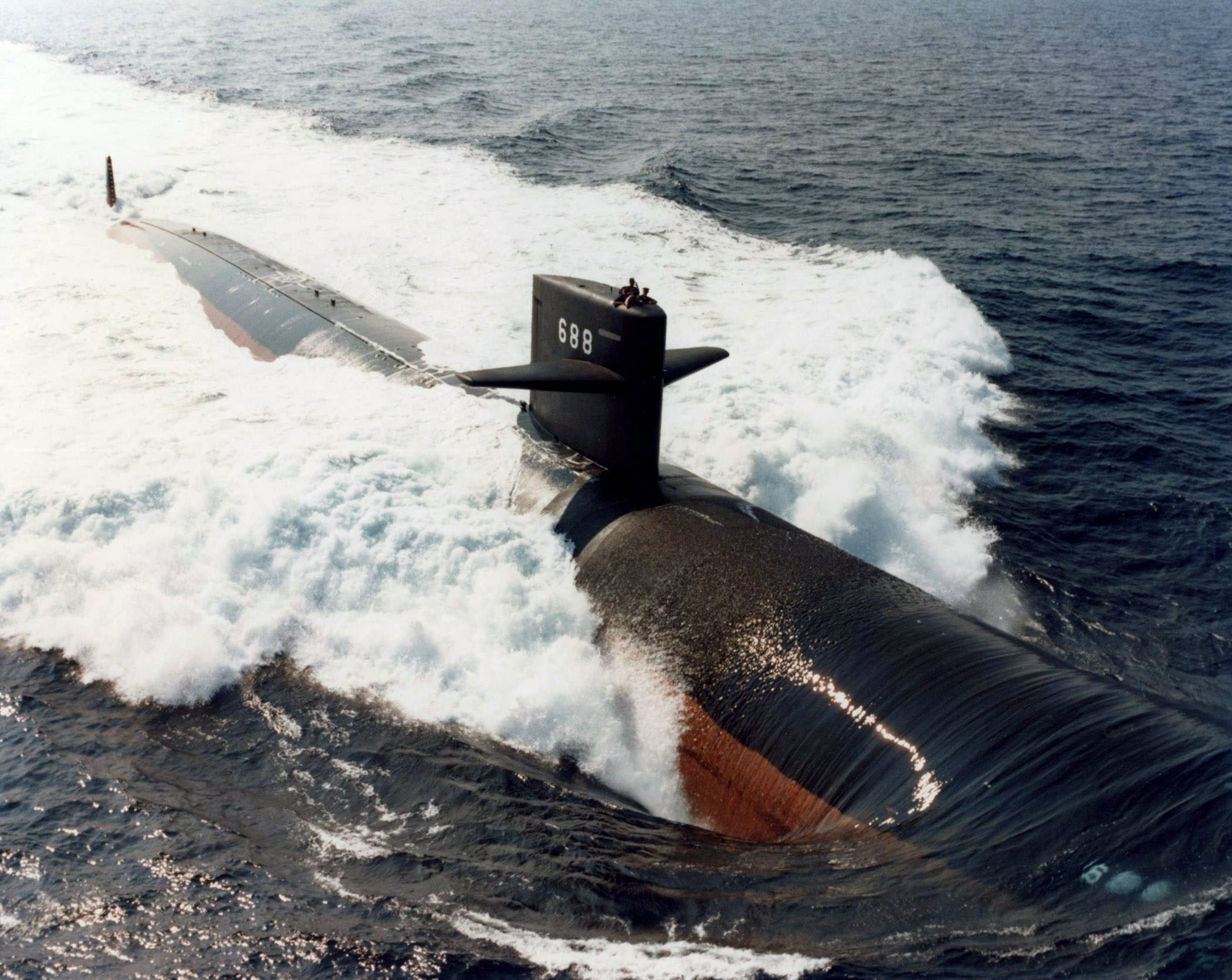
41
New cards
SSN-688 and 688I Los Angeles Class Attack Subs (SSN 688 -- 773) CAPABILITIES
Test Depth: 800+ Feet
Speed: 20+ Knots Submerged, 14+ Knots Surfaced
Speed: 20+ Knots Submerged, 14+ Knots Surfaced
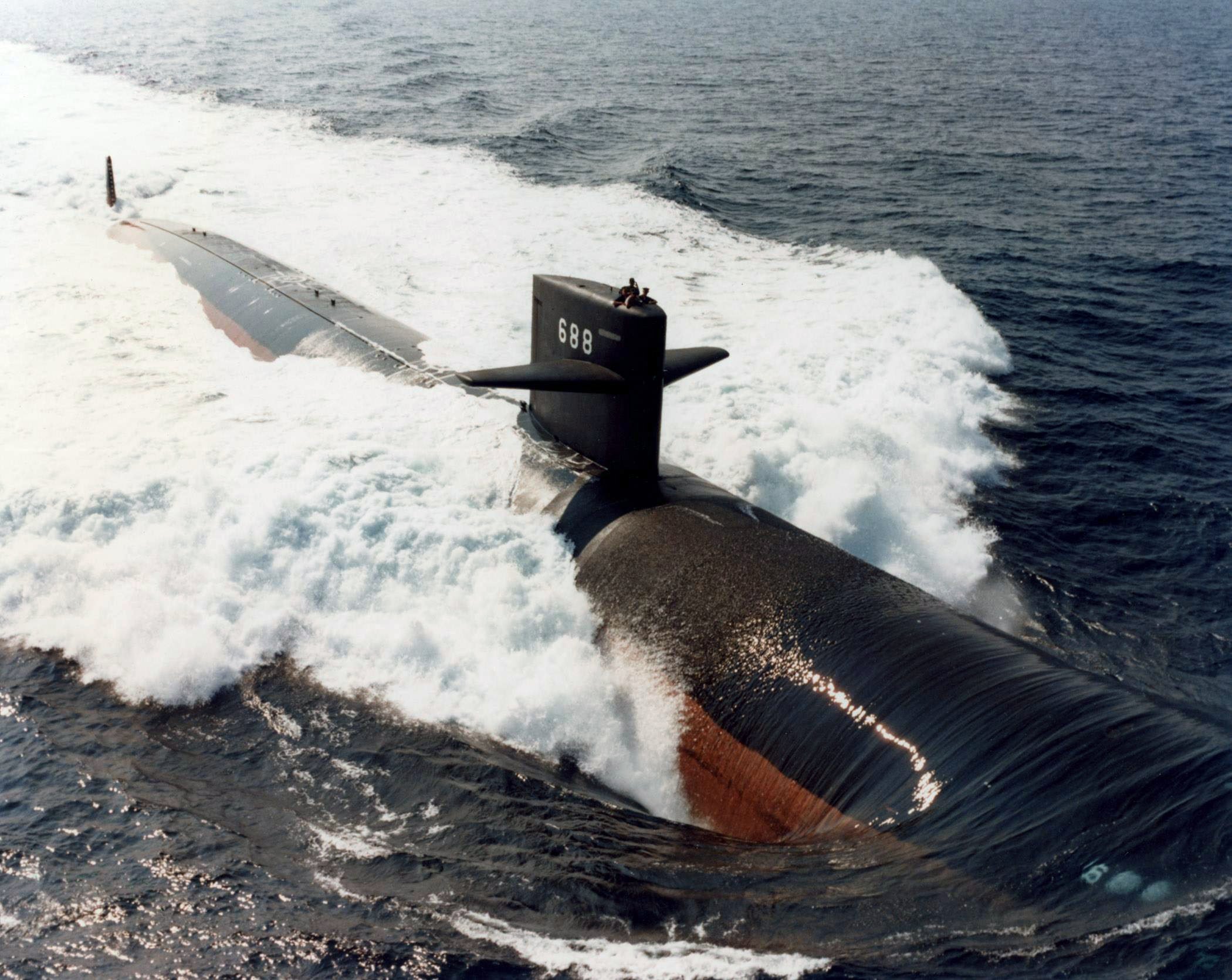
42
New cards
SSN-688 and 688I Los Angeles Class Attack Subs (SSN 688 -- 773) VISUAL IDENTIFICATION
Length: 362 ft.
Beam: 33 ft.
Draft: 31 ft.
Flight I - Fairwater planes
Flight II - Fairwater planes & 12 VLS tubes in bow
Flight III - Bow planes & 12 VLS tubes in bow
Sails unfaired at leading edge.
Beam: 33 ft.
Draft: 31 ft.
Flight I - Fairwater planes
Flight II - Fairwater planes & 12 VLS tubes in bow
Flight III - Bow planes & 12 VLS tubes in bow
Sails unfaired at leading edge.
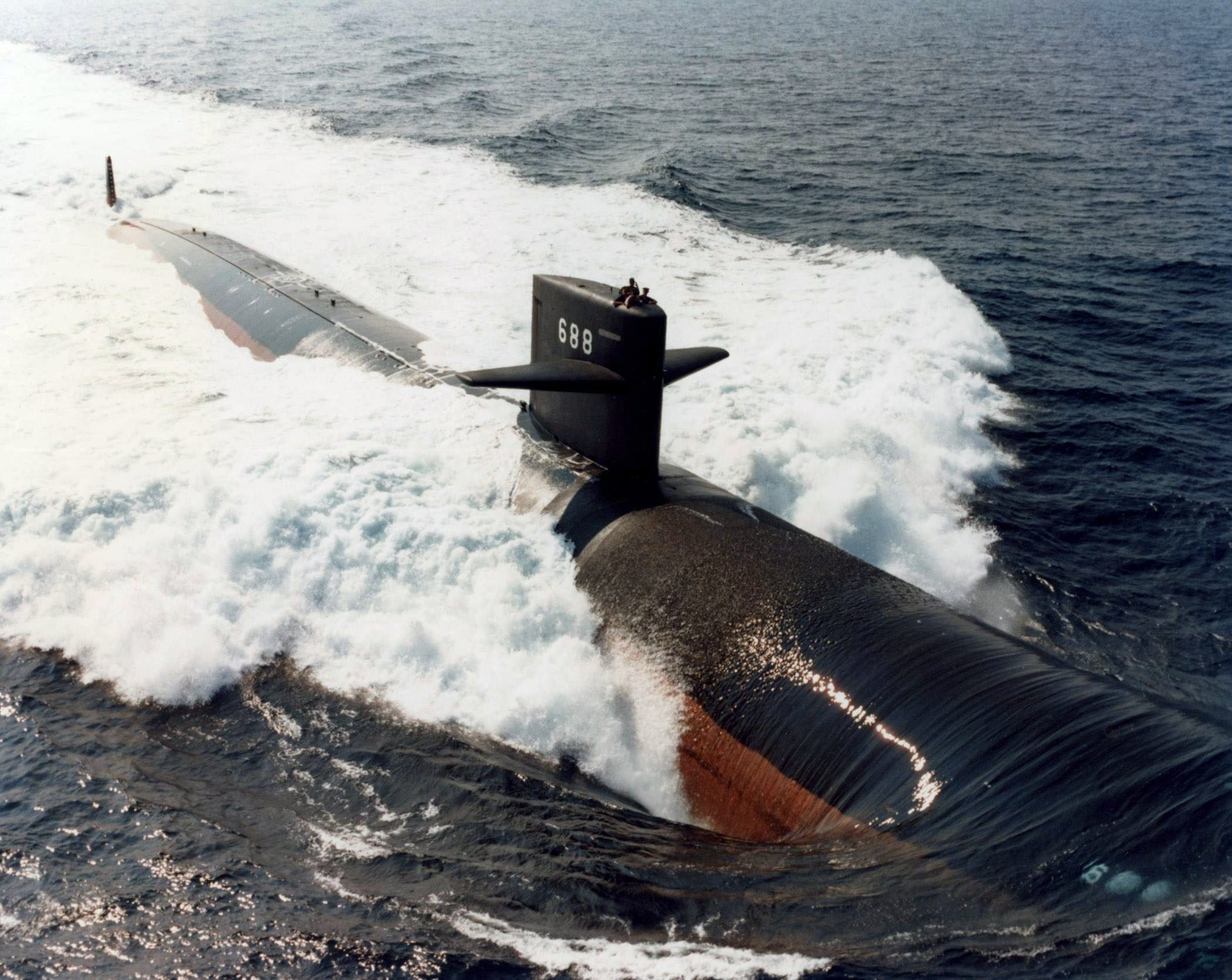
43
New cards
SSN-21 Seawolf Class Attack Submarine (SSN 21 -- SSN 23) VISUAL IDENTIFICATION
Beam > LA Class
Length < LA Class
Sails faired at leading edge
Fitted with bow planes
Length < LA Class
Sails faired at leading edge
Fitted with bow planes
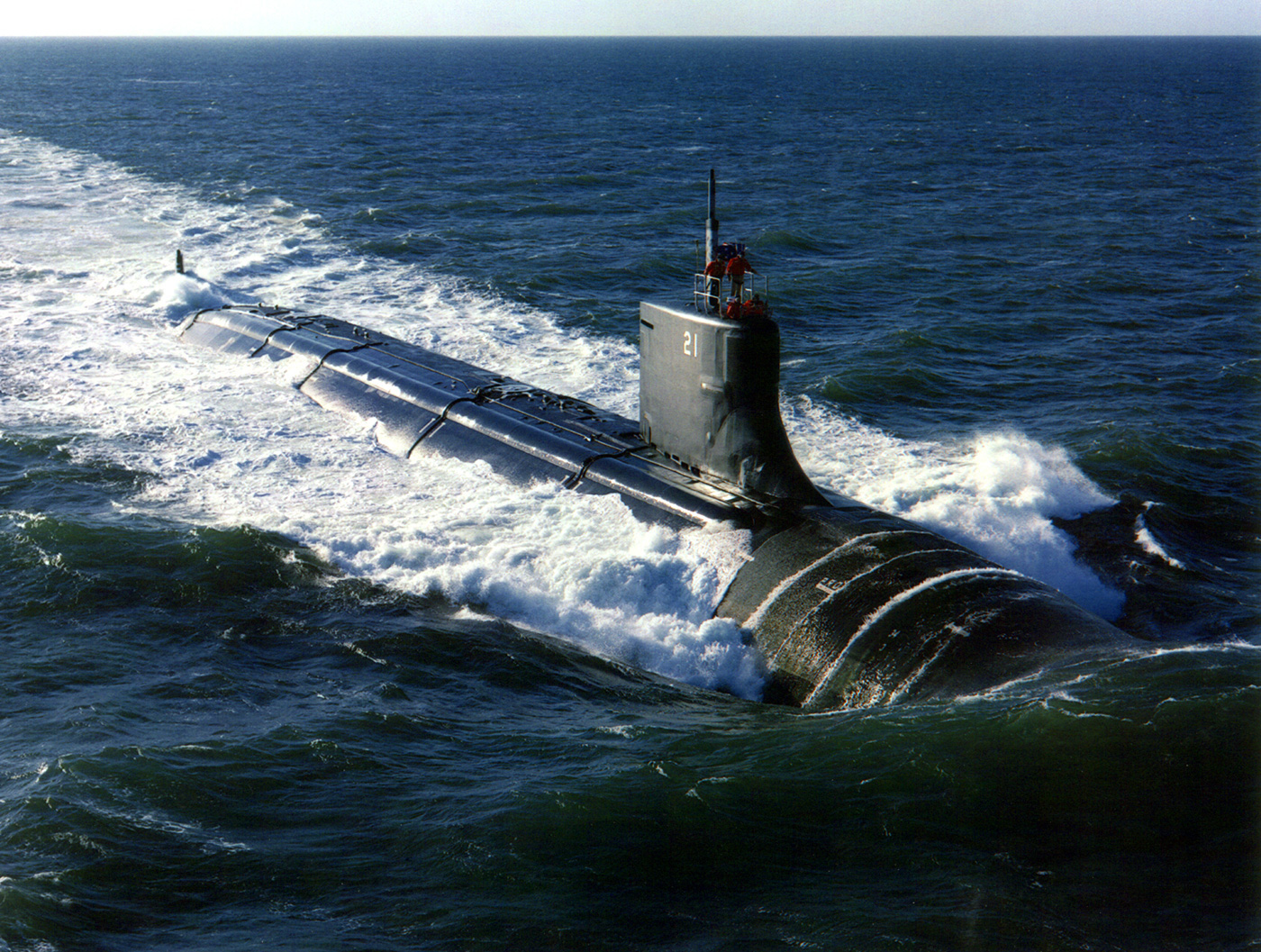
44
New cards
SSN-21 Seawolf Class Attack Submarine (SSN 21 -- SSN 23) WEAPONS
8 Torpedo Tubes
- MK 48 ADCAP Torpedoes
- UGM-109 Tomahawk Cruise Missiles
- MK 48 ADCAP Torpedoes
- UGM-109 Tomahawk Cruise Missiles
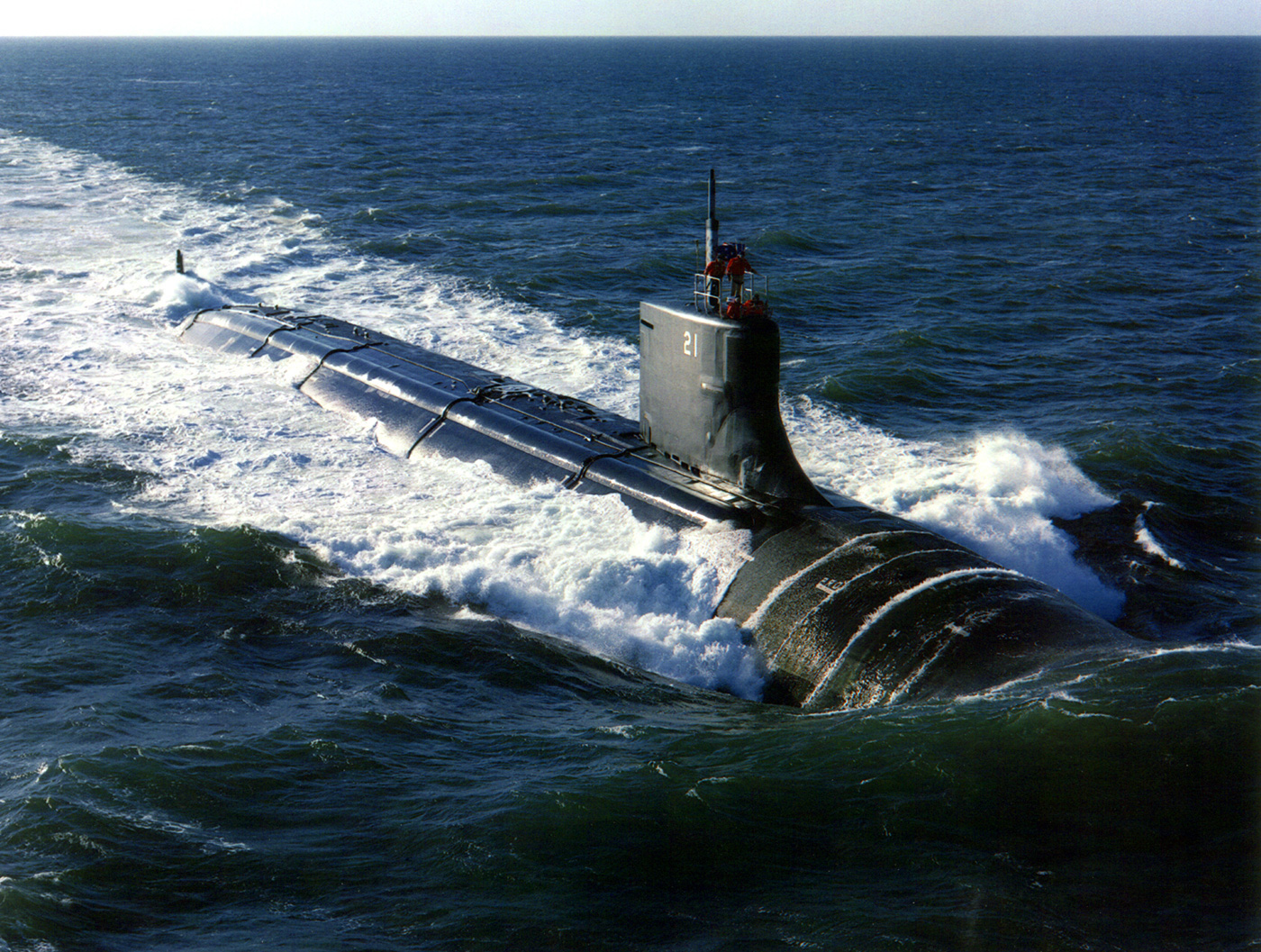
45
New cards
SSN-74 Virginia Class Attack Submarine (SSN 774 -- SSN 821 Beyond) VISUAL IDENTIFICATION
Length > LA Class
Sails faired at leading edge, fitted with bow planes/VLS
Sails faired at leading edge, fitted with bow planes/VLS
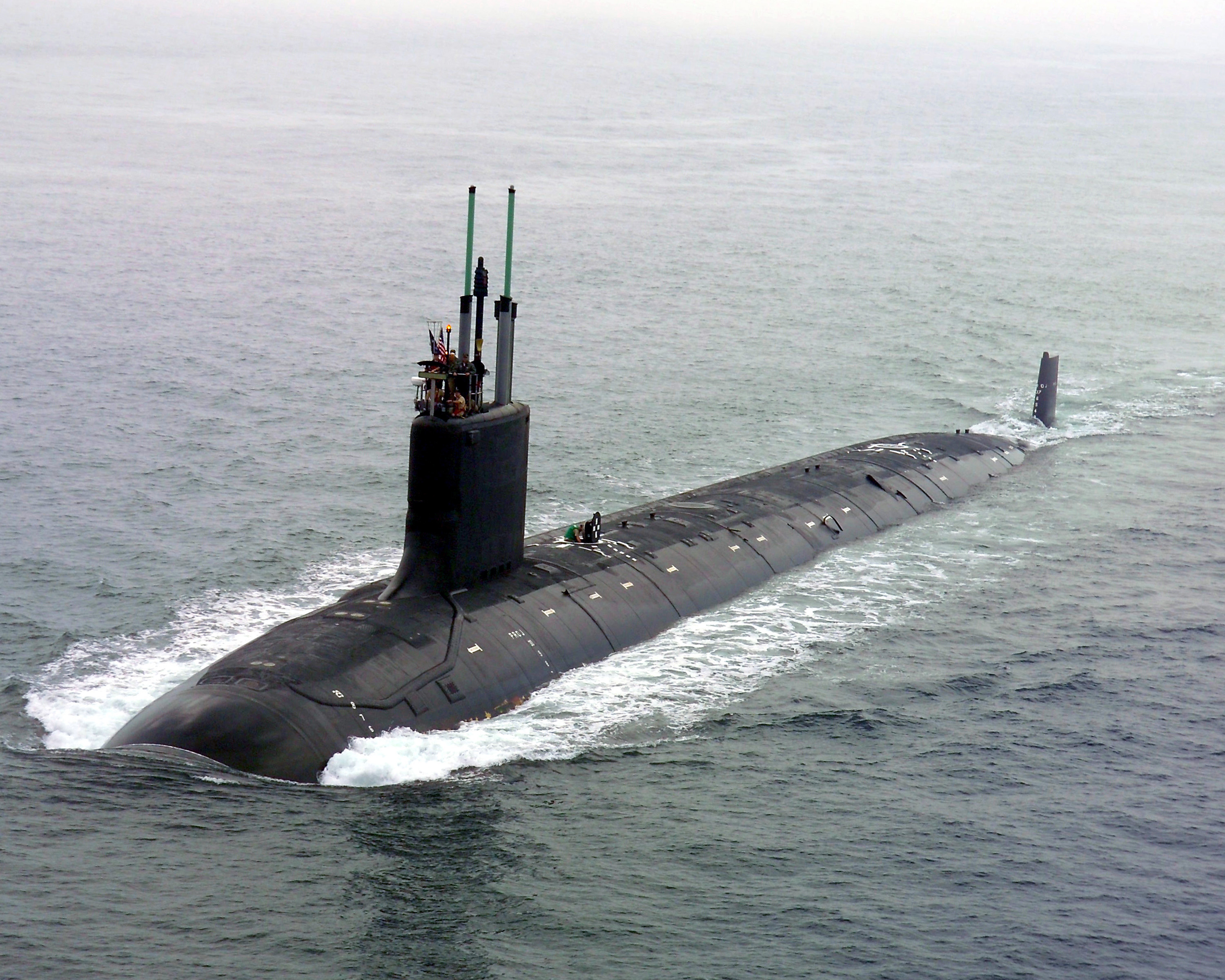
46
New cards
SSN-74 Virginia Class Attack Submarine (SSN 774 -- SSN 821 Beyond) WEAPONS
4 Torpedo Tubes
- MK 48 ADCAP Torpedoes
- UGM-109 Tomahawk Cruise Missiles
- MK 48 ADCAP Torpedoes
- UGM-109 Tomahawk Cruise Missiles
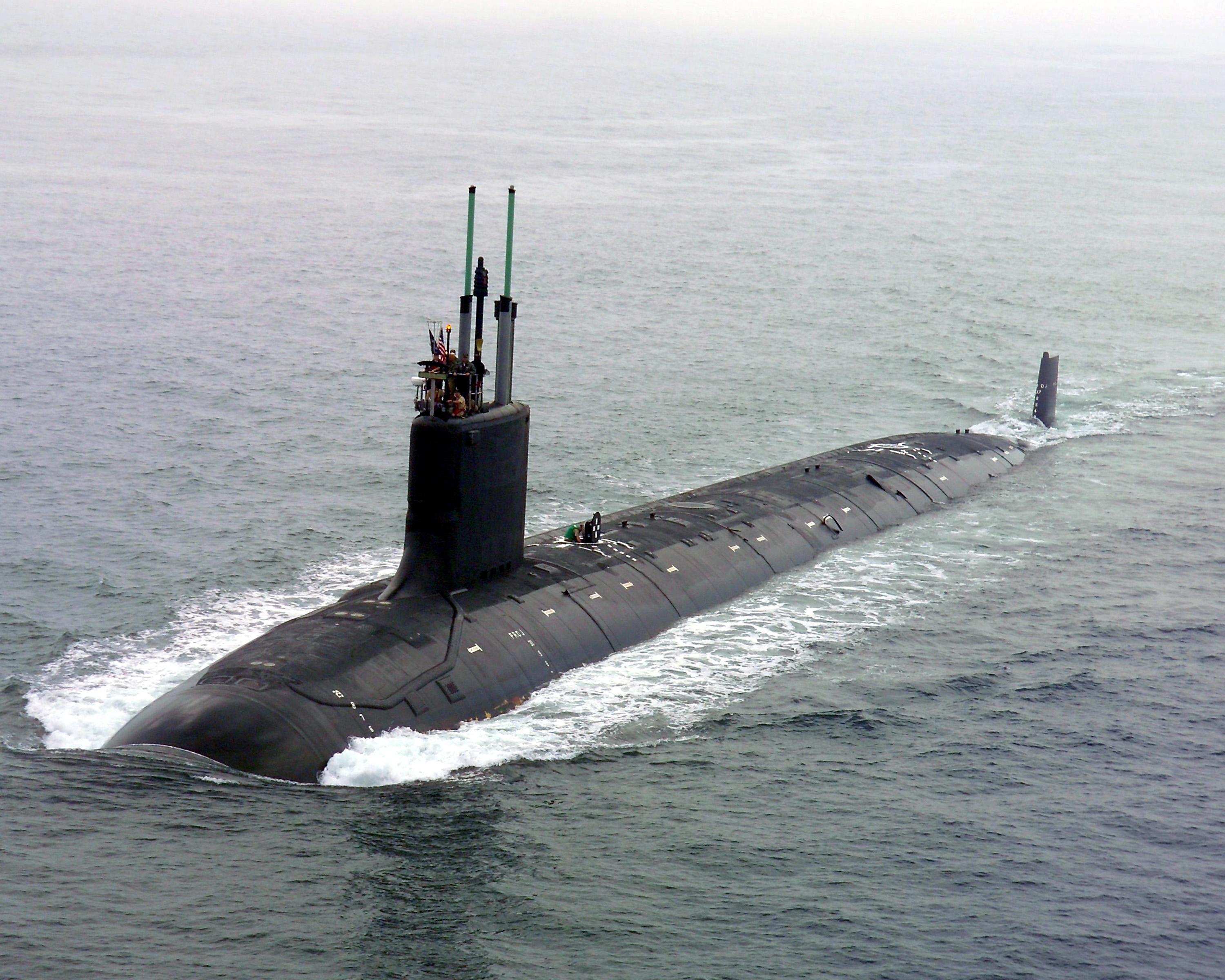
47
New cards
SSN-74 Virginia Class Attack Submarine (SSN 774 -- SSN 821 Beyond) CAPABILITIES
Test Depth: 800+ ft.
Speed: 25+ knots submerged
Speed: 25+ knots submerged
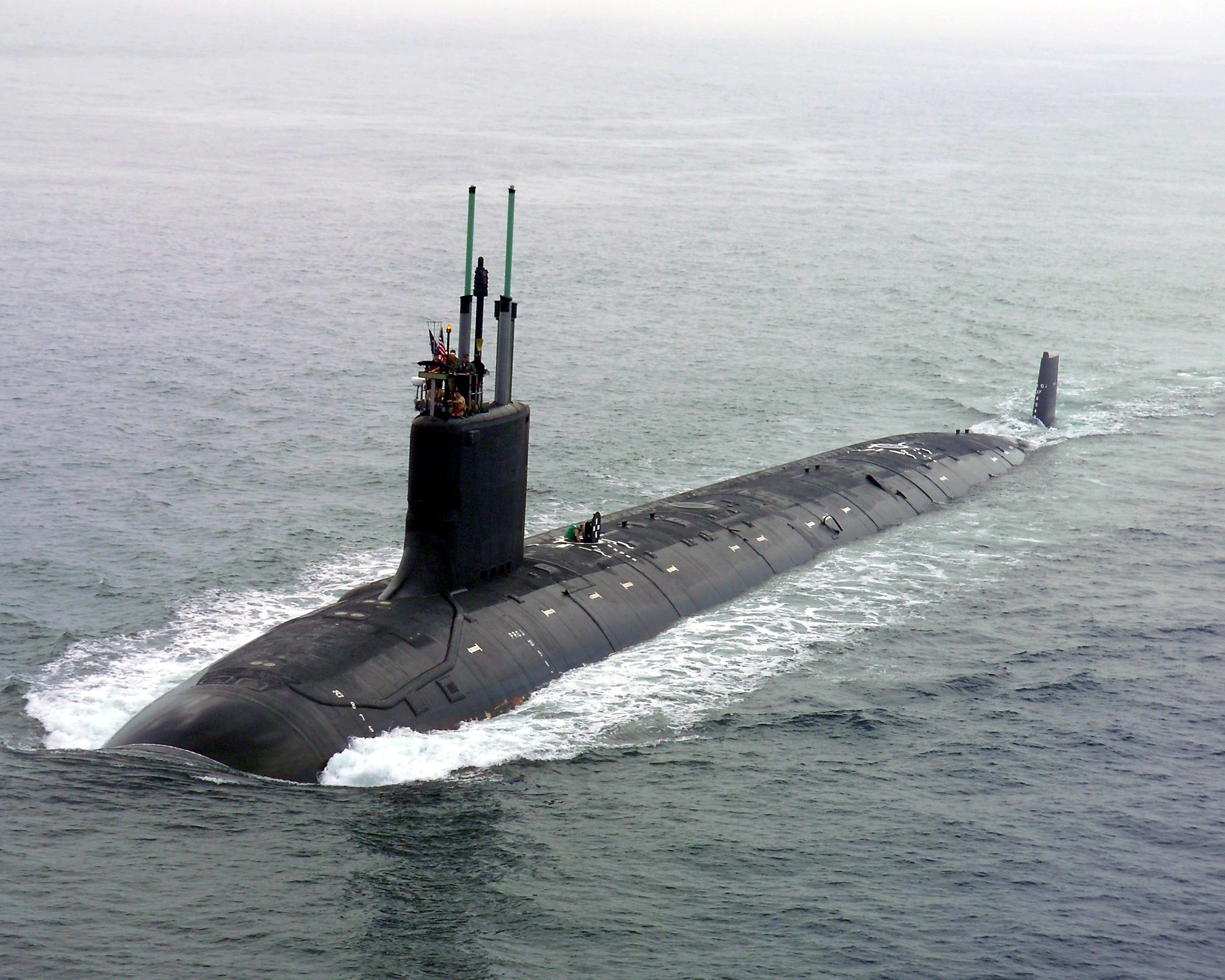
48
New cards
SSBN-726 Ohio Class Ballistic Missile Submarine (SSBN 726 -- 743) VISUAL IDENTIFICATION
Length: 560 ft.
Beam: 42 ft.
Draft: 35 ft.
Fairwater Planes
Large "turtleback" hull design
Beam: 42 ft.
Draft: 35 ft.
Fairwater Planes
Large "turtleback" hull design
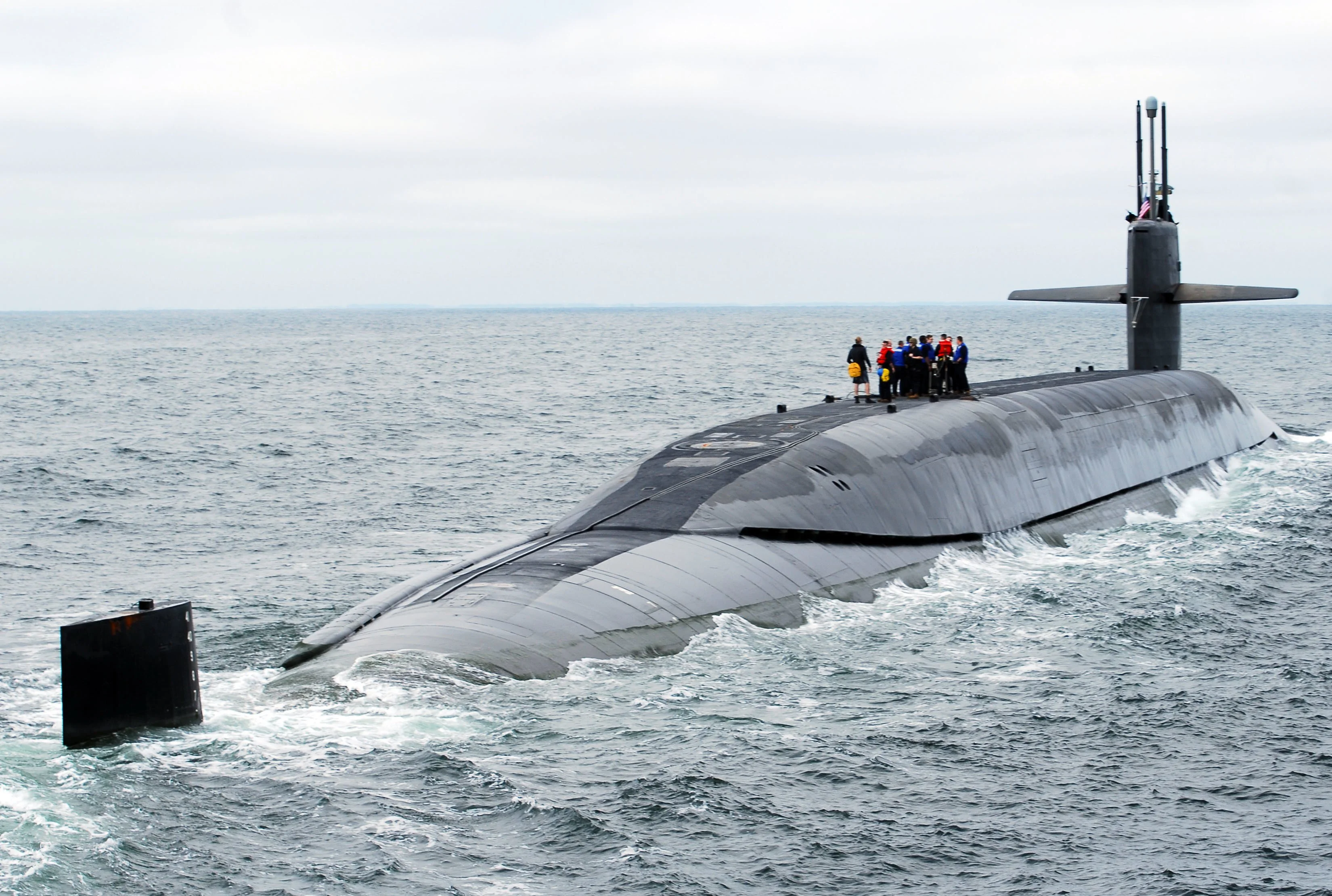
49
New cards
SSBN-726 Ohio Class Ballistic Missile Submarine (SSBN 726 -- 743) WEAPONS
24x Trident II D5 SLBM Tubes
4x Torpedo Tubes
- MK 48 Torpedoes
4x Torpedo Tubes
- MK 48 Torpedoes
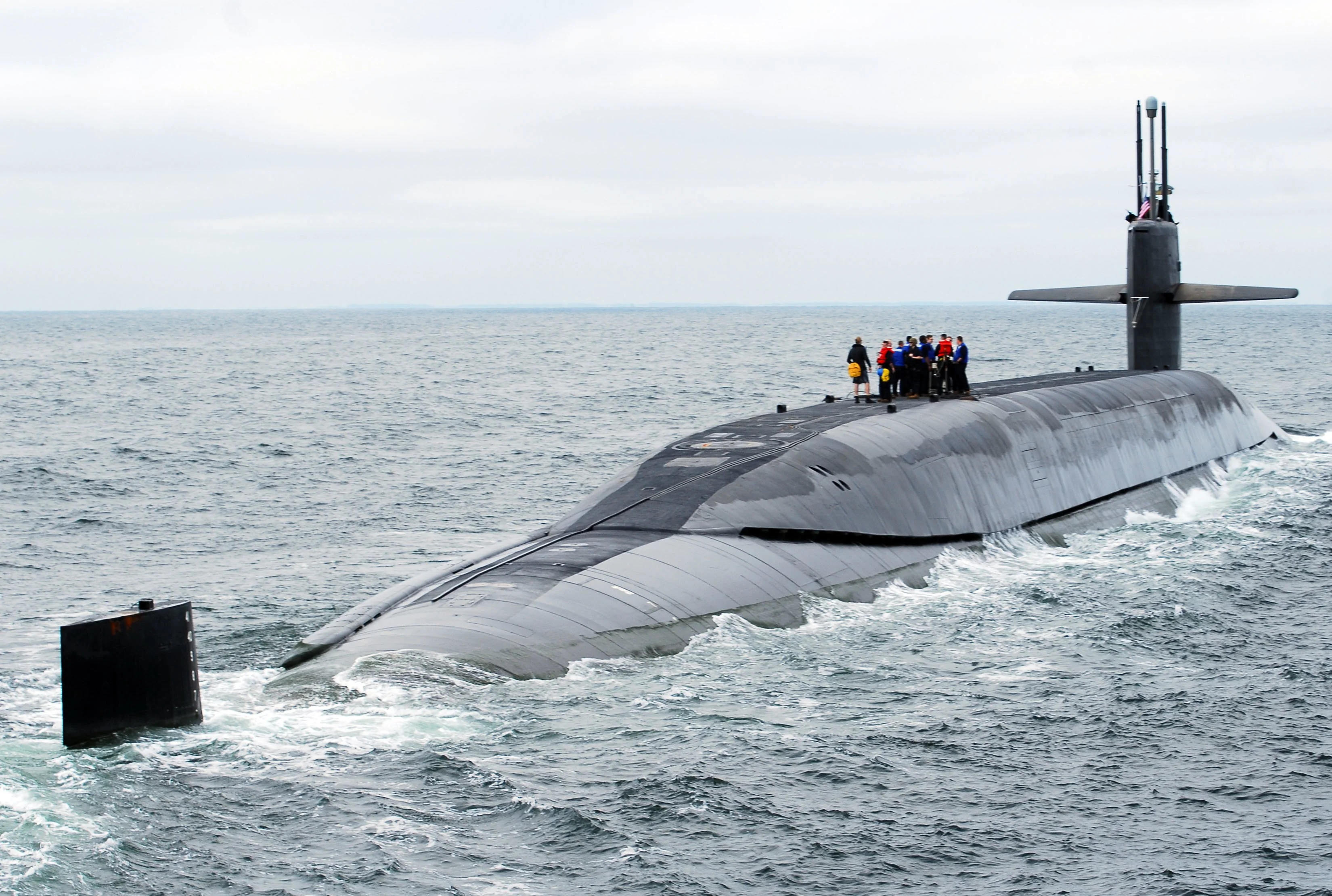
50
New cards
SSBN-726 Ohio Class Ballistic Missile Submarine (SSBN 726 -- 743) CAPABILITIES
Test Depth: 800+ ft.
Speed: 20+ knots Submerged
Speed: 20+ knots Submerged
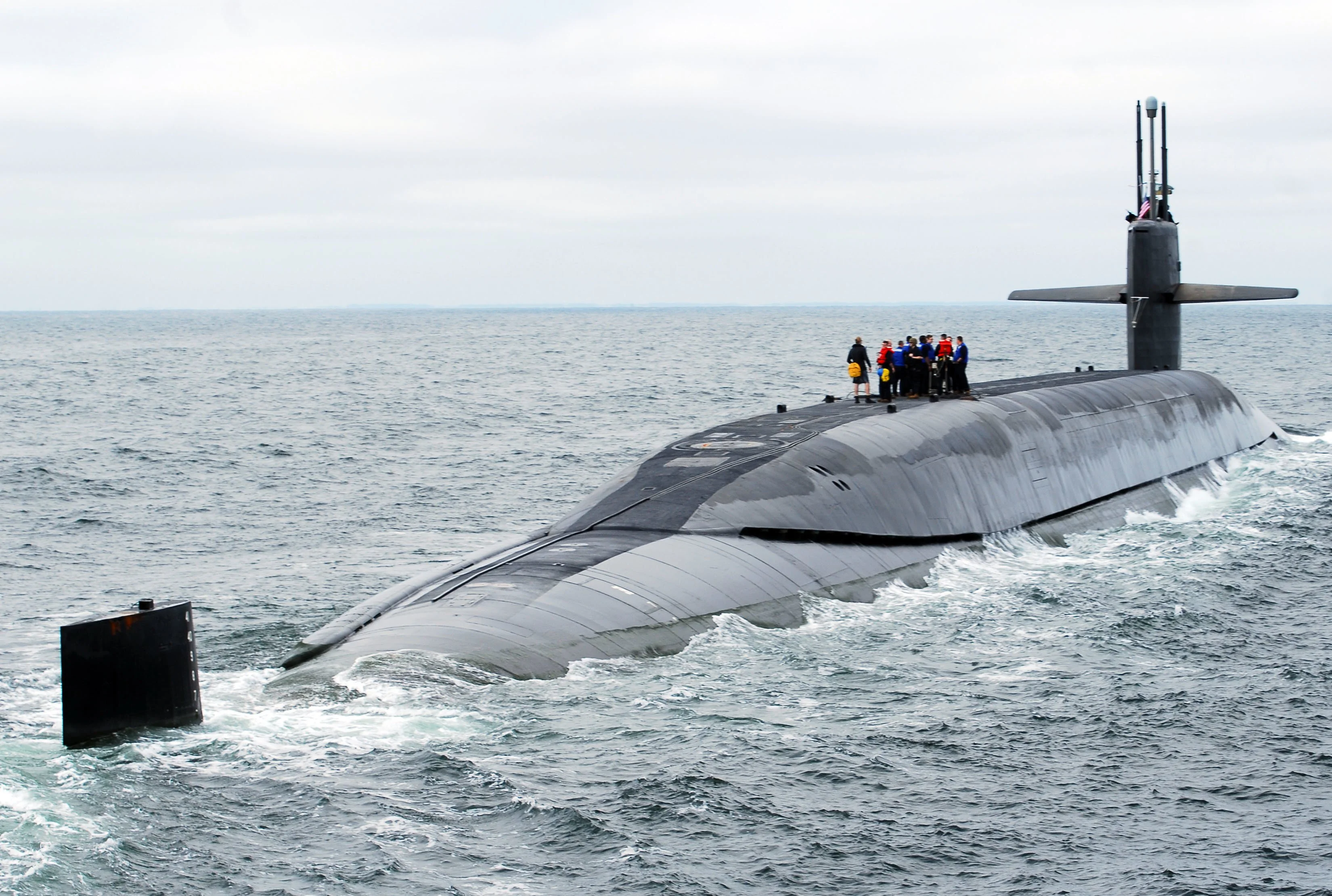
51
New cards
SSBN-726 Ohio Class Guided Missile Submarine VISUAL IDENTIFICATION
Fairwater planes/sail planes
Large "turtleback" hull design
Deck stays dry when at surface
Large "turtleback" hull design
Deck stays dry when at surface
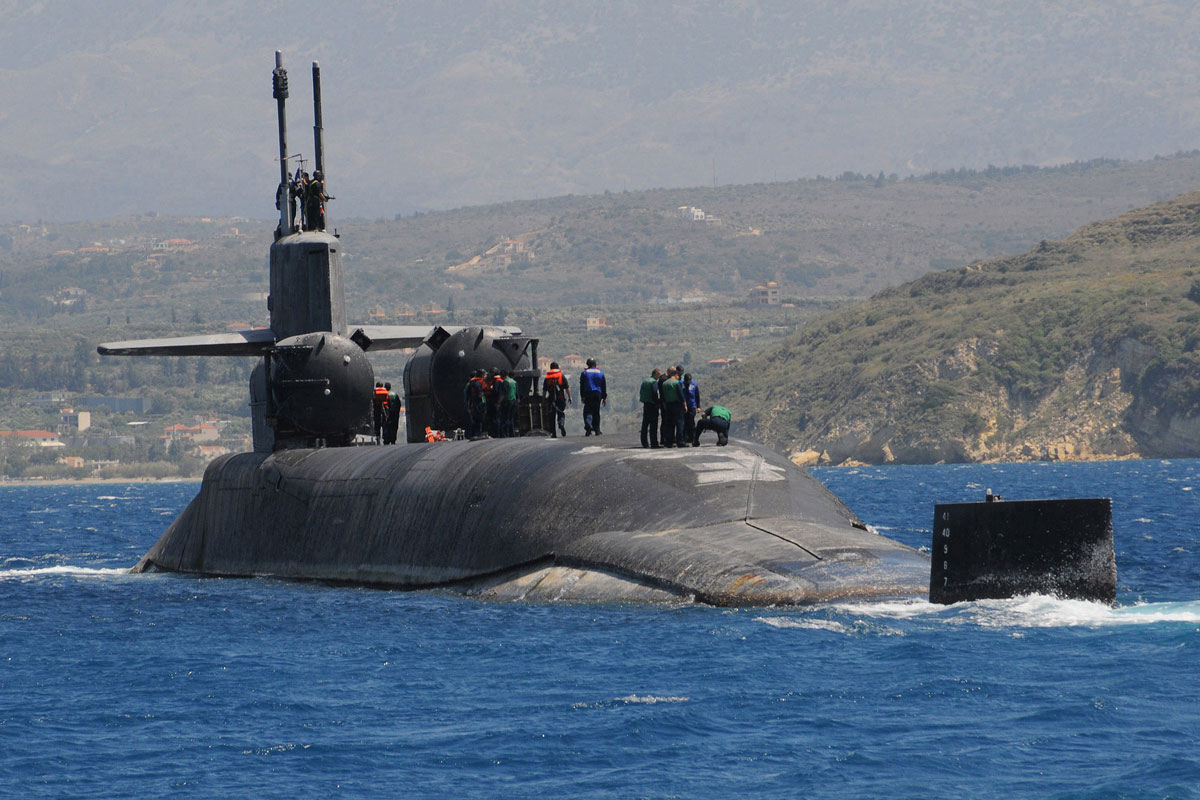
52
New cards
SSBN-726 Ohio Class Guided Missile Submarine WEAPONS
4 Torpedo Tubes
- MK 48 Torpedoes
22 of 24 Missile Tubes
- x7 UGM-109 Tomahawk Cruise missiles per tube -- MAX 154
- MK 48 Torpedoes
22 of 24 Missile Tubes
- x7 UGM-109 Tomahawk Cruise missiles per tube -- MAX 154
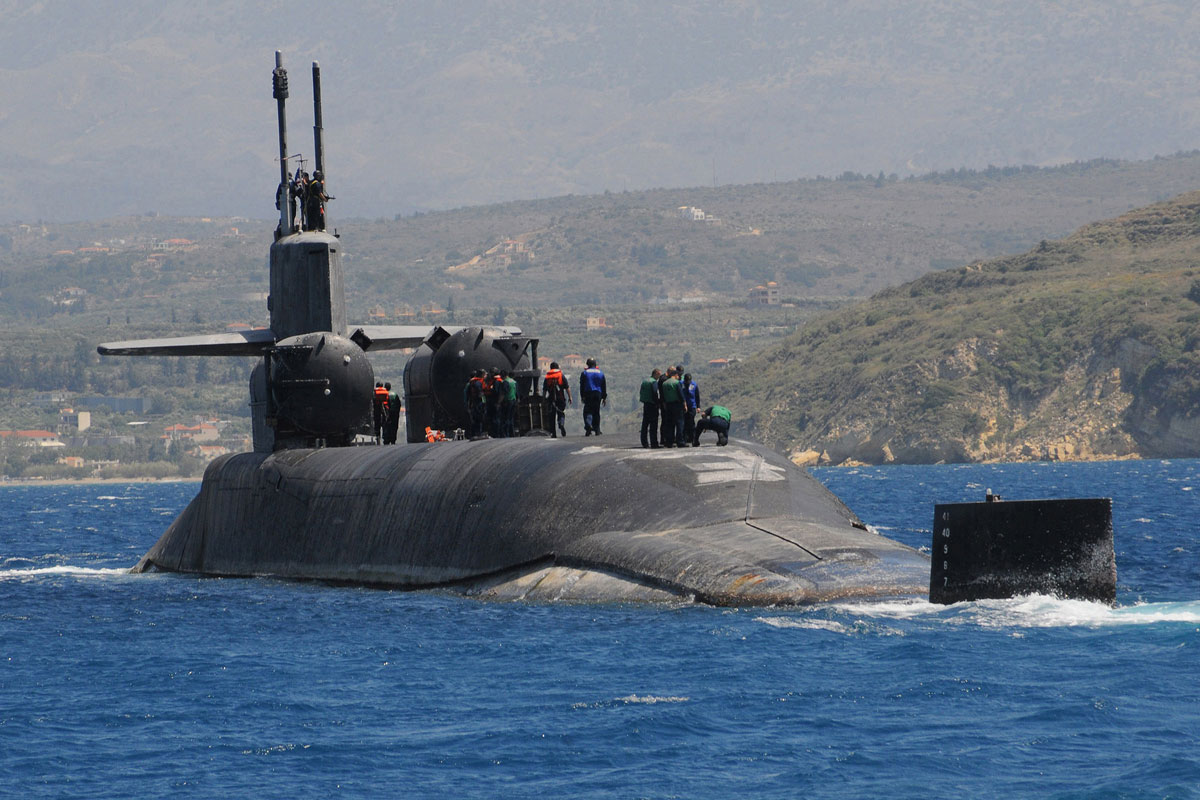
53
New cards
SSBN-726 Ohio Class Guided Missile Submarine ENHANCED CAPABILITIES
Berth for 66 SOF personnel, MAX 90 DAYS
Can Carry Dry Deck Shelter/SEAL Delivery Vehicle (DDS/SDV)
Launch Unmanned Aerial Vehicles (UAV) or Unmanned Underwater Vehicles (UUV)
Can Carry Dry Deck Shelter/SEAL Delivery Vehicle (DDS/SDV)
Launch Unmanned Aerial Vehicles (UAV) or Unmanned Underwater Vehicles (UUV)
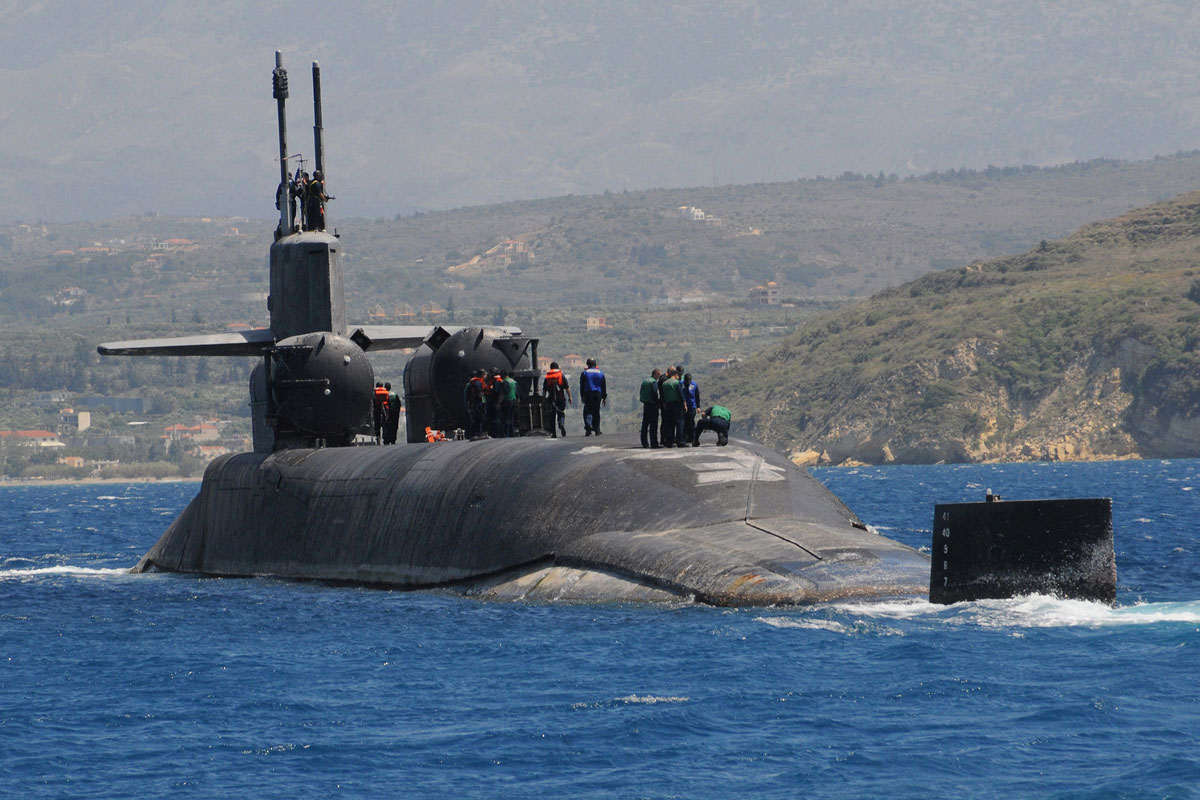
54
New cards
Notable Virginia Class Attack Submarine
USS Virginia (SSN-774), USS North Dakota (SSN 784)